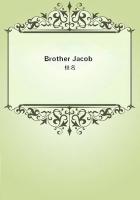A dispute, which broke out about the destruction or suppression of Jewish books, afforded him a splendid opportunity of venting his spleen against the Church. A converted Jew of Cologne named Pfefferkorn advocated the suppression of all Jewish religious books except the Old Testament, as the best means of converting his former co-religionists. The Emperor, Maximilian, was not unwilling to listen to such advice supported as it was by the universities of Cologne, Mainz, and Erfut. Reuchlin, a professor of Heidelberg and himself a well-known Hebrew scholar, opposed such a policy as bad in itself and as injurious to the proper understanding of the Old Testament. A warm controversy thereupon ensued. The Dominicans of Cologne espoused the cause of Pfefferkorn, while the Humanists, scenting in the attack upon Jewish literature an onslaught directed against the entire literary revival, supported the contentions of Reuchlin. It was a war between two opposing schools--the Theologians and the Humanists; and, unfortunately for the Theologians, they had selected their ground badly, and were but poorly equipped for a battle in which victory was to be decided by popular opinion.
Reuchlin was summoned to appear before the Inquisitor to answer for the views put forward in his /Augenspeigel/ (1511), and was condemned.
He appealed to Rome, and the Bishop of Speier was ordered to investigate the case. The result was the acquittal of Reuchlin (1514), but his adversaries, having objected to the mode of trial, the case was transferred once more to the Roman courts. Meanwhile the controversy was carried on in Germany with great bitterness. Reuchlin published a volume of sympathetic letters[13] received by him from the leading scholars of Germany, and Erasmus issued a new edition (1515)of his /Praise of Folly (Encomium Moriae)/ in which he ridiculed especially the monks and theologians.
But the book which was most damaging to the opponents of Humanism was beyond doubt the /Epistolae virorum obscurorum/. It was a work consisting of two volumes, the first brought out by Grotus Rubeanus in 1514, and the second mostly from the pen of Urich von Hutten (1517).
Like Reuchlin's work it purported to be a collection of letters addressed by the theologians to Ortwin Gratius, the champion of Cologne university and, indeed, of the whole Scholastic party. It was full of bitterness and vulgarity, but, as a humorous caricature of the theologians, their arguments and modes of expression, it was calculated to make them ridiculous especially in the eyes of the university students. Against an attack of this kind serious arguments were unavailing, and, unfortunately, there was no apologist of theology capable of producing a reply couched in a strain similar to that of the /Epistolae/. Gratius himself did undertake the task in his /Lamentationes obscurorum virorum/, but without success, and undoubtedly in the eyes of the general public the victory rested with the Humanists. The whole controversy was extremely unfortunate, because it helped to blind many to the real issues at stake when the Lutheran movement began. By it the Theologians and Humanists were divided into two hostile camps, with the result that the latter were inclined to support Luther against their own former opponents and in vindication of the liberal policy which they had advocated; while the Theologian, having been discredited as narrow-minded obscurantists in the eyes of a large body of university men, were handicapped seriously in a struggle with Luther even though their struggle was for fundamental religious principles.[14]
The most remarkable of the men, who, though not Germans, were closely identified with German Humanists, was Desiderius Erasmus (1466-1535).[15] He was born at Rotterdam, was sent to school with the Brothers of the Common Life at Deventer, entered a monastery of the Canons Regular attracted by its library rather than by its rule, and left it after two years to become secretary to the Bishop of Cambrai.
He studied classics at the University of Paris, and after his ordination as priest by the Bishop of Utrecht he became a tutor to an English nobleman. Later on he paid a visit to England, where he received a warm welcome from scholars like Fisher, Bishop of Rochester, Colet, Dean of St. Paul's, and Sir Thomas More, and where he was honoured by an appointment as Professor of Greek in Oxford. But the fever of travel was upon him. He returned to Paris, made a brief stay at Louvain, and started out to visit the leading literary centres of Italy, notably Bologna, Venice, and Rome, in the latter of which he was well received by Julius II.
On the accession of Henry VIII. he returned to England and lectured for some time at Cambridge. Later on he removed to Basle and settled down to the work of preparing editions of the New Testament and of the Fathers. The triumph of the Reformation party in Basle drove him for a time to seek a refuge in Freiburg, but he returned to die at Basle in 1536.
In his wanderings Erasmus was brought into contact with the leading scholars of France, England, Germany, and Italy, and was thoroughly acquainted with the lights and shadows of the Renaissance movement. In his knowledge of Greek he was surpassed by few of his contemporaries, and in the purity and ease of his Latin style he stood without a serious rival. Like many others of the Humanist school he delighted in attacking the ignorance of the monks and Scholastics, and in denouncing the abuses of the age, though, as was the case with most of the literary reformers of the time, his own life as an ecclesiastic was far from exemplary.














